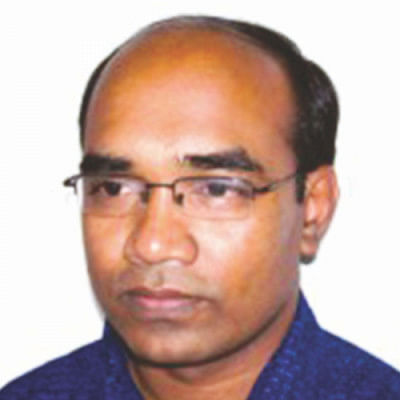It is a black law and we should rethink it: Fahmidul Haq

Under this law, if anyone complains that his or her image is tarnished by someone's speech or writings, the police will take actions against the latter and it will be a non-bailable offence. The punishment was 10 years' imprisonment, now it has been made 14 years. The amount of the fine has also gone up.
People are expressing their thoughts on social, political and personal matters. It is a right that is protected by Article 39 of the Constitution. But with this law in existence, there is always a chance of this constitutional right being abused and misused. We have seen it in the case of Probir Sikder.
I want to say it is a black law and I think we should rethink it. With the rise of social media, the very nature of communication has changed. People all over the world now have an opportunity to express their views, ideas and opinions. This opportunity did not exist before—the expressions and communications were one-way and in the hands of experts, journalists and broadcasters. People just don't receive information anymore. Citizens are now doing their own research and expressing their views on social media. It may not be very professional but it is getting importance in the society. People are communicating with each other on important issues.
Governments are becoming afraid. They are afraid that people will be united and raise their voices. We are seeing it in different places in the world—people are taking to the streets. As a result, we see different kinds of laws in different countries to control online interactions. It seems that the laws are motivated less by the willingness to stop cyber crimes and more by the threat they feel from people's freedom to express themselves. But we have to think: are we actually violating people's constitutional rights in the name of combating cyber crimes?
Therefore, we must rewrite Section 57. Things will have to be well-defined. Legal experts are saying that there are a lot of vague terms in this section of the law. How do you define the image of a person and the state?
Now, one can argue that people are still writing and expressing their thoughts and opinions. But the fact is there is a sense of fear among them. On the other hand, bloggers are being killed. And people are not getting enough support from the government.
This kind of laws can only push us further into a more unpredictable situation.
The commentator is Associate Professor, Department of Mass Communication and Journalism, University of Dhaka.

 For all latest news, follow The Daily Star's Google News channel.
For all latest news, follow The Daily Star's Google News channel. 



Comments